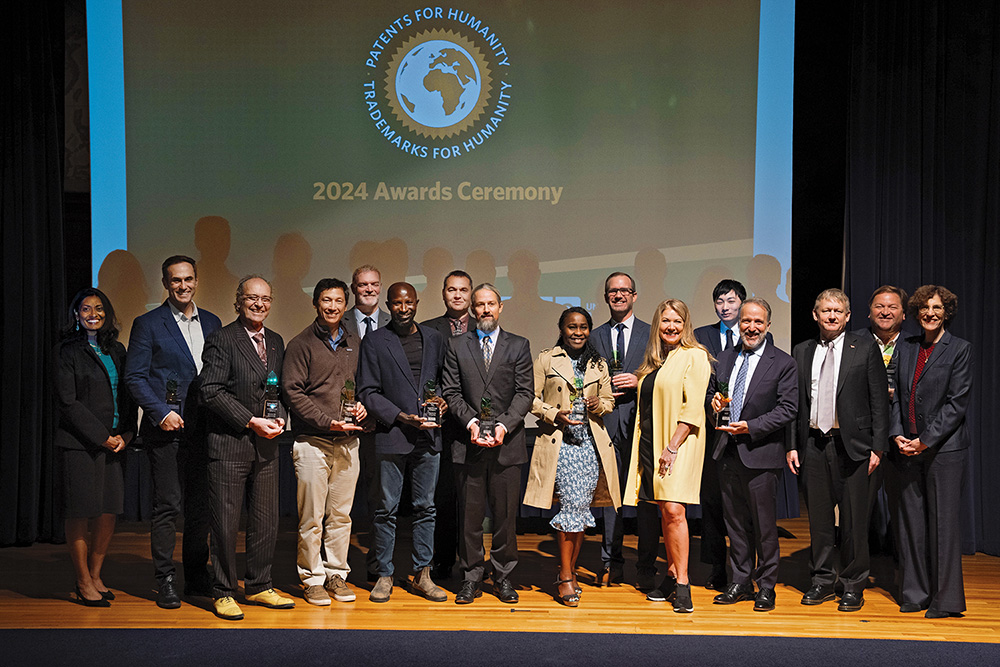The University of South Florida and its spin-out company T2C Energy LLC were awarded a 2024 Patent for Humanity in the Green Energy category by the U.S. Patent and Trademark Office. This award, presented to eight recipients at a ceremony on December 3rd at the U.S. Department of Commerce, recognizes companies responding rapidly to the challenges of climate change by developing green energy sources using game-changing technologies.
“I congratulate these passionate pioneers for their dedication and the tremendous work they are doing to address climate change and improve the environment for the health and safety of present and future generations,” said Kathi Vidal, Under Secretary of Commerce for Intellectual Property and Director of the USPTO.
T2C Energy converts biogas from landfills and anaerobic digesters into drop-in, renewable jet and diesel fuels. USF College of Engineering Professors Babu Joseph and John Kuhn and their graduate students Ali Gardezi, Tim Roberge and Devin Walker cofounded the company in 2012 after creating TRIFTS®, a patented process for converting waste material into high-grade fuel.
Kuhn led one of the four USF teams selected for the national NSF I-Corps program in Fall 2017 and participated in the USF I-Corps program again in 2018. NSF I-Corps is a public-private partnership program that trains university entrepreneurs to identify valuable product opportunities that can emerge from academic research. Roberge and Walker won the DOE Megawatt Ventures Challenge in 2012 that led to the formation of the company.
USF Professor of Engineering Daniel Yeh, who also participated in the USF and NSF I-Corps programs, earned USF’s first USPTO Patent for Humanity Award in 2020 for his NEWgenerator invention. Three years later, USF received a second Patent for Humanity Award for inventing the 3D-printed nasopharyngeal swab during the early stages of the COVID-19 pandemic.
The Patents for Humanity highlight businesses that are finding unique and creative ways to reach underserved markets. Their stories show that humanitarian engagement is compatible with business interests and strong intellectual property protections, and that companies can effectively contribute to global good while maintaining commercial markets.
